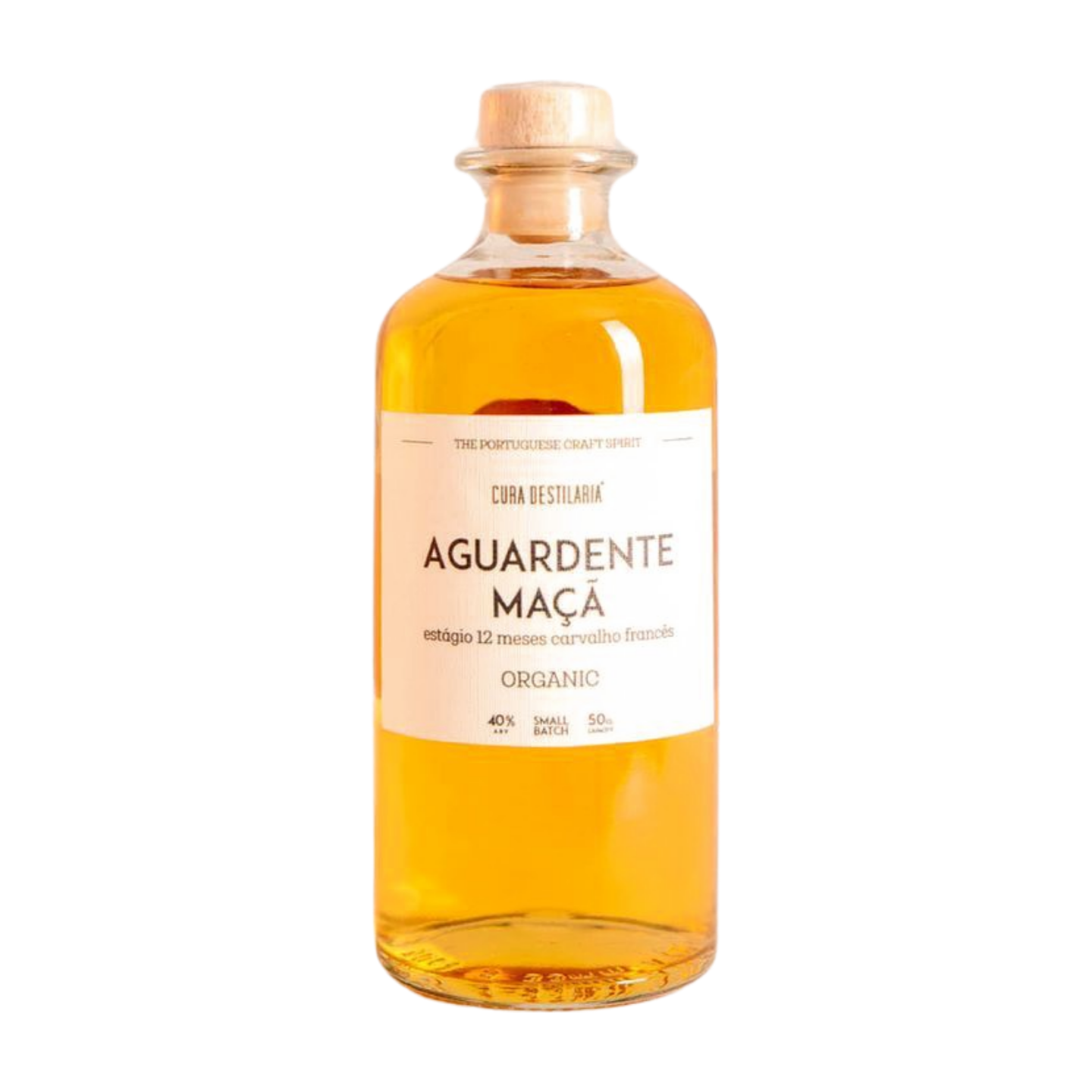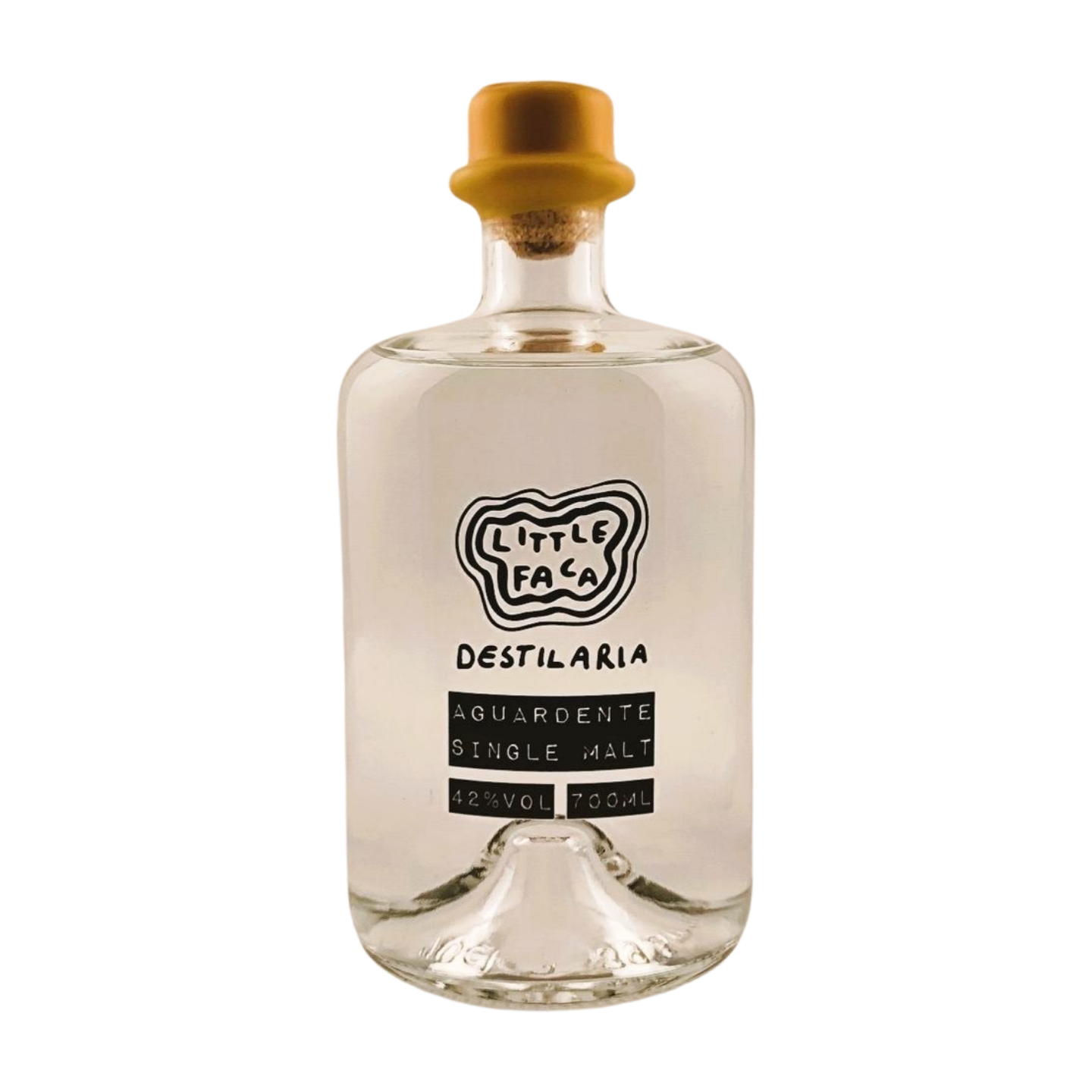Aguardente
Aguardente is a traditional spirit with deep roots in Portuguese culture. Produced through a meticulous distillation process that has been refined over generations, its journey begins with the grape harvest, typically using white grape varieties that yield a clean, low-alcohol wine with good acidity and neutral flavors. This base wine is crucial for creating a high-quality aguardente.
Once the grapes have been harvested and fermented into wine, the distillation process can begin. Traditionally, this is done using an alambique, a copper pot still that allows for precise control over the distillation. The wine is heated in the still, causing the alcohol to vaporize at a lower temperature than water. These vapors are then collected and condensed back into liquid form, resulting in a clear spirit with a high alcohol content, typically around 60% alcohol by volume.
The art of distillation lies in separating the "heads," "heart," and "tails" of the distillate. The "heads" contain impurities and undesirable compounds, while the "heart" is the prized portion with complex aromas and flavors. The "tails" consist of heavier compounds that are also discarded. A skilled distiller knows exactly when to make these cuts to produce the best quality aguardente.
Historically, aguardente production in Portugal often utilized excess wine or lower quality wines that were not suitable for regular consumption. However, this practice has evolved, and now there are dedicated regions and processes for creating high-quality aguardente. The Lourinhã region, for example, has gained recognition as one of only three demarcated regions in the world for aguardente production, alongside Cognac and Armagnac in France.
After distillation, some aguardentes are aged in oak barrels, which imparts additional flavors and complexity to the spirit. These aged versions, often labeled as "velha" or with specific age statements, are typically more expensive and highly prized. The aging process takes place in humid cellars to minimize evaporation losses and allow for optimal maturation.
It's worth noting that while many high-quality aguardentes follow this traditional process, there are also less expensive versions that may be "prepared" with caramel and artificial aromas rather than undergoing barrel aging.
The production of aguardente has become an integral part of Portuguese culture, with many families and small producers creating their own versions using traditional methods passed down through generations. This spirit not only serves as a digestif but also plays a role in various Portuguese culinary traditions and social gatherings, embodying the rich heritage and craftsmanship of the country's winemaking and distilling traditions.
Filters
Portuguese wine
Frequently asked questions
The entire country of Portugal is divided into 14 different wine regions, including in the Azores and Madeira islands. Some of Portugal's most famous winemaking regions include the Douro Valley (known for Port) and Vinho Verde (known for its light, refreshing white wines).
Portugal is becoming more well known for its orange wines, talha wines (traditionally made in clay pots), and palhete (made by blending red and white grapes together).
Portugal is best known for its fortified wine, called Port wine. It is produced in the Douro Valley, which is a UNESCO World Heritage Site and recognized as the world's first demarcated wine region, established in 1756.
Vinho Verde in northern Portugal is another popular winemaking region characterized by rolling hills and lush landscapes. It's known around the world for low-alcohol, refreshing white wines, although the region traditionally focused more on red wines made with the fruit-forward vinhão grape.
The Portuguese island of Madeira, with its subtropical climate, is renowned for its fortified wines. Winemaking here dates back to the 15th century, when Portuguese
explorers brought grape varieties from around the world.
Our sustainable, natural wine shop is located in the Marquês neighborhood in Porto, Portugal. We also ship to countries around the world, including within Europe, the United States, Canada, Australia, China, and more. Review our Shipping Policy to learn more.
In recent years, there has been a notable shift toward sustainable viticulture and the production of natural wine in Portugal. Many winemakers are implementing organic farming practices and embracing biodiversity to maintain soil health and reduce chemical inputs. This commitment to sustainability is not only beneficial for the environment but also enhances the quality of the wines, allowing the unique characteristics of the terroir to shine through. For example, some winemakers are now utilizing ancient terracotta amphorae for fermentation (called talha in Portuguese). This method preserves regional cultural heritage, enhances the wine's character, and aligns with sustainable practices by reducing reliance on modern materials.


